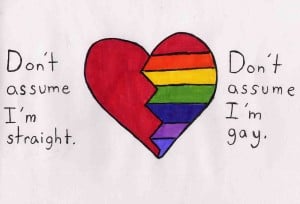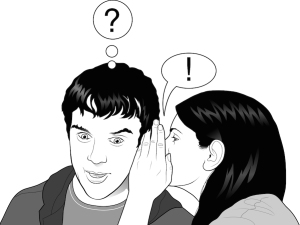
Credit: Love Panky
You’ve probably heard that old adage more than once, “You can’t love someone until you love yourself!”
Or, as RuPaul says, “If you don’t love yourself, how in the hell are you going to love somebody else?”
Well, if you’re reading this post, you may be proving the adage wrong. In fact, in some ways, when you don’t feel lovable it can actually feel much easier to love somebody else than yourself.
I’ve Been There
Back when I was struggling with negative body image, I had some troubling and complicated feelings about my own lovableness and my “right” to be in a relationship.
I made a lot of choices from this place of feeling unlovable, like putting up with things that I would now characterize as emotional abuse.
Feeling unlovable put me in a place of deep scarcity — if I was unlovable, and someone loved me or was interested in me, I should then do everything I can to keep that person, right?
To make things really complicated, I often dated guys who felt unlovable as well. One guy I dated had an online affair with someone else for nearly a year while we were dating.
When I found out about it, his excuse was that he felt unlovable and was convinced that I was going to break up with him, so he was hedging his bets by having an online thing with someone else.
Whether what he said was true or not, you can see how just feeling unlovable can negatively affect your relationships.
Lovable ≠ Perfect
Somewhere in your life you got the message that whatever flaws you may have (real or perceived) are impediments to being loved. You may have been told this outright, or internalized societal or familial beliefs.
Thoughts of your unworthiness probably take the form of “I’m too _____” or “I’m not ______ enough.”
For example, you may think you’re too fat, too thin, too bossy, too intelligent, too emotional, etc. to be lovable. Or you may have thoughts like, “I’m not attractive enough, smart enough, funny enough, giving enough,” etc.
The thought that you’re too much or not enough will always keep you feeling stuck. And, as I like to say, it sells a lot of product, because we’re always trying to fix these flaws.
We both know that the truth is everyone is flawed. I mean, everyone.
So why should your particular flaws keep you from feeling worthy of love?
You’re right. They shouldn’t.
Start Feeling More Lovable
I could try to give you a whole bunch of workarounds for how to deal with being in a relationship while continuing to feel unlovable, but I don’t think that’s the answer.
Ultimately, being happy in a relationship is nearly impossible if you feel unlovable.
From what I’ve seen with clients, you’ll either ignore your needs and act from a place of keeping your partner happy rather than yourself, or push your partner away in order to confirm your belief that you’re unlovable.
So I want to share a few steps that can help you begin to believe that you are, indeed, lovable.
All of these techniques have made a HUGE difference in my life, so I hope you’ll try at least one.
1) Feel (All Of) The Love.
From now on, all the love you receive counts as a sign that you’re lovable. Your partner says they love you — it counts. Your sister tells you she loves you — it counts.
Your friend tells you how much fun she has spending time with you –it’s love, and it counts. You get praised at work, the bagel store person give you an extra blueberry bagel on the house — that’s love.
It counts.
Keep a journal and note all the times that people express how much they adore you, how happy they are that they’re in your life, etc.
Let the list grow.
2) Trust The Love You Receive.
This goes along with step #1, but it’s time to trust people when they say they love you or otherwise express their love. If you’re in a relationship and your partner says they love you, take it at face value.
Believe it and let yourself feel it.
People like to be agreed with and acknowledged. If someone says they love you, and you say, “No, you don’t,” it doesn’t feel very good for either of you.
It’s time to start believing what people express to you.
If you have a hard time trusting what your partner is saying, you may want to take a deeper look into (a) whether your partner is actually trustworthy or not and/or (b) whether you have trust issues stemming from past relationships that you may need to resolve.
3) Practice Loving Yourself.
Loving yourself can take many forms. You might decide to talk or think lovingly about yourself throughout the day.
You can use phrases like, “I am wonderful” and “I am loveable.”
You could do nice things for yourself, like buy yourself flowers, wear your favorite clothes, give yourself a foot massage, etc.
These sorts of self care practices send a signal to yourself that you are loved and cared for.
The more you experience that love from yourself and for yourself, the more you’ll be able to feel it in your relationships.
Golda Poretsky is a Contributing Writer for Everyday Feminism. She’s a certified holistic health counselor and founder of Body Love Wellness, a program designed for plus-sized women who are fed up with dieting and want support to stop obsessing about food and weight. To learn more about Golda and her work, go to www.bodylovewellness.com. Follow her on Twitter at @bodylovewellnes.
Search our 3000+ articles!
Read our articles about:
Our online racial justice training
Used by hundreds of universities, non-profits, and businesses.
Click to learn more




















